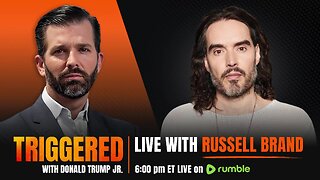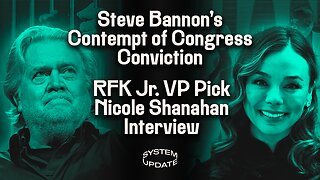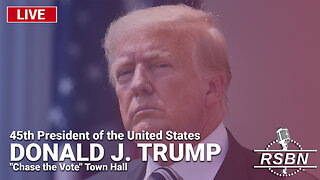Are target date funds bad?
Are target date funds bad?
Target date funds gradually shift their asset allocation over time to become more conservative as the target date approaches. The target date refers to the date of anticipated retirement. For example, a 2050 fund would be for those targeting to retire in the year 2050. The fund seeks to maximize returns and minimize risk based on the time horizon.
Target date funds are a popular tool. They are perhaps best compared to one size fit all clothing: they fit the average person well but your milage will vary.
They are a blend of investments designed for a certain timeline. They progress from more aggressive to more conservative over time. They are a fine choice for people that do not want to micro-manage their portfolio and asset allocation, instead, preferring a hands-off approach that emphasizes convenience and simplicity.
They are best suited to tax advantaged portfolios like a 401k or IRA because they rebalance regularly. The rebalancing of the fund creates capital gains distributions. There is also interest from bonds held in the fund that is taxable as ordinary income. They are not tax efficient, and therefore should not be held in a taxable brokerage account.
There is substantial evidence that actively managed accounts trail passive, diversified, low cost options like target date funds, especially after fees and expenses. I would argue target date funds are preferable to active management that is often quite costly. Not only can you have better returns by not picking individual stocks and instead relying on a target date fund, but you can also save yourself a lot of time and stress. I’d say if a target date fund keeps you from going in and out of stock positions, put your money in a target date fund.
Not all target date funds are going to be passively managed with a low expense ratio. The Schwab Target 2055 Fund (SWORX) has an expense ratio of 0.58% versus the Schwab Target 2055 Index Fund (SWYJX) with an expense ratio of 0.08%.
However low expense a target date fund is, it is still more expensive than the sum of the individual pieces. For example, VTTSX has an expense ratio of 0.08% but the individual funds it invests in have a combined expense ratio of ~0.04. On a $100,000 that is $40 per a year. For a million dollars, that is only $400 per a year. Therefore, the added expense of a target date fund versus the sum of the individual components is negligible, I would argue.
One of the main issues I have with them is that they tend to be overly conservatives. The solution to this issue is picking one that is 5 or 10 more years out.
Works Cited:
https://www.investopedia.com/terms/t/target-date_fund.asp
Notes:
The difference between a 90/10 stock/bond allocation and a 100/0 is not much in terms of performance, but there is a large difference in terms of risk.
Tags:
target date funds, target date funds explained, target date fund, fidelity target date funds, target date funds vs index funds, vanguard target date funds, best target date fund, target date, investing in target date funds, 401k target date funds, vanguard target retirement funds, what are target date funds, target date funds vanguard, target date funds pros and cons, target date index funds, target date retirement funds, target date fund for retirement
-
 3:29
3:29
The Last Capitalist in Chicago
8 months ago $0.05 earnedAmericans are spending like there is no tomorrow
1771 -
 1:21:32
1:21:32
Game On!
9 hours agoStanley Cup Finals: Oilers vs Panthers Series Preview
45.7K5 -
 1:15:28
1:15:28
Precision Rifle Network
1 day agoGuns & Grub S2E7
44.4K6 -
 2:23:00
2:23:00
Donald Trump Jr.
15 hours agoLIVE WITH RUSSELL BRAND | TRIGGERED Ep.143
167K273 -
 1:19:17
1:19:17
Glenn Greenwald
12 hours agoSteve Bannon's Contempt Charges Reveal Historic Double Standard; Interview with RFK Jr.'s Running Mate Nicole Shanahan on the 2024 Election and More | SYSTEM UPDATE #278
84.3K226 -
 1:02:52
1:02:52
The Late Kick with Josh Pate
12 hours agoLate Kick Live Ep 519: CFB’s Biggest ?s | Hall-Of-Fame Broken | Deion Expectations | Bold Predictions
32K2 -
 59:54
59:54
The StoneZONE with Roger Stone
11 hours agoThe 2024 GOP National Platform Will Be Donald Trump's - w/ Ed Martin | The StoneZONE w/ Roger Stone
38K2 -
 LIVE
LIVE
Right Side Broadcasting Network
3 days agoLIVE REPLAY: "Chase the Vote" Town Hall With President Donald J. Trump - 6/6/2024
2,698 watching -
 1:55:36
1:55:36
The Quartering
14 hours agoSteven Bannon To Prison, Biden Deuces His Pants, Wokest Star Wars Disaster & More
73K34 -
 2:03:41
2:03:41
Quite Frankly
14 hours ago"The Boyd Flu, The Unjected, D-Day, and Patton" ft Shelby Hosana 6/6/24
41.5K23